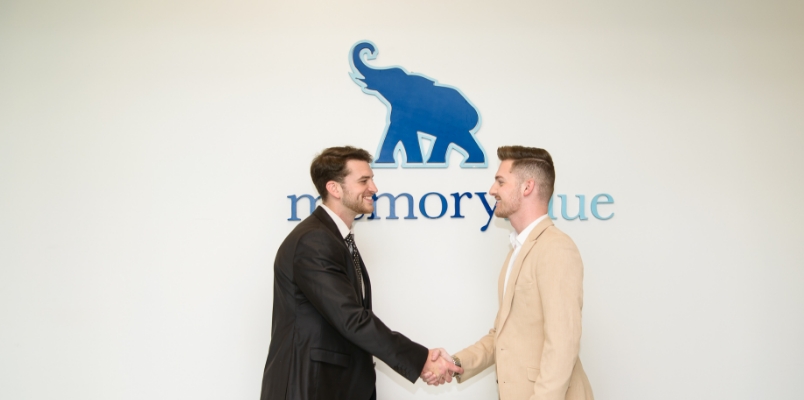Ever heard the term “BDR” and wondered what its relation is to the fast-paced world of sales? A BDR – meaning Business Development Representative – is a linchpin in the vast machinery of sales strategies, connecting initial marketing buzz with concrete sales results. But what is a BDR exactly and how does this role differ from other sales consulting services? Dive into this article to unravel the nuances of a BDR’s pivotal role and why they might just be the unsung heroes of the sales world.

Defining the Role of a Business Development Representative
A business development representative plays a pivotal role in shaping the initial stages of the sales process, often acting as the face of the company to prospective clients and partners. As critical players in outreach and lead generation services, their responsibilities are varied and vital. Here are the core duties of a BDR:
- Initial Outreach and Engagement: A BDR is often the first point of contact for potential clients or partners. They reach out proactively, introducing the company’s offerings and gauging interest.
- Strategic Business Prospecting: Unlike roles purely focused on sales targets, BDR sales focus on strategic business growth. BDRs identify key players in the market, potential partnership opportunities and industries where the company’s solutions can make a mark.
- Lead Generation: One of the primary responsibilities of a BDR is B2B lead generation – that is, identifying potential leads through online research, industry events, networking or inbound inquiries. A BDR’s knack for spotting potential clients helps build a robust sales pipeline.
- Outbound Outreach: Armed with a list of potential leads, a business development representative engages in telephone outreach, emails and social media messages. Their goal? To spark interest and initiate a conversation about the company’s offerings.
- Lead Qualification: Not every lead is a good fit. BDRs assess potential leads, determining if they align with the company’s target audience, have the necessary budget and genuinely require the solutions offered.
- Setting Appointments: Once a lead shows interest, BDRs schedule meetings between potential clients and senior sales representatives or account executives. This transition is crucial, ensuring a seamless handover of well-prepared leads to the sales team.
- Collaborating with Marketing: BDRs and marketing teams often work hand-in-hand. BDRs provide feedback on which marketing strategies yield the best leads and leverage marketing content and campaigns during outreach.
- Maintaining CRM Systems: A BDR’s work is data-driven. They continuously update CRM (Customer Relationship Management) systems with new leads, record outreach efforts and track lead progression through the sales funnel.
- Market Analysis: To stay ahead in sales, BDRs require knowledge of the market landscape. They often use competitor analysis, industry trends and customer feedback to refine their outreach strategies and identify new opportunities.
- Continuous Learning and Adaptation: The business world is ever-evolving, and so is the role of a BDR, meaning they continuously adapt, learning about emerging industries, changing market dynamics and new business tools and techniques.
Skills and Qualities of a Successful Sales BDR
Being a sales BDR is no walk in the park. The position demands a unique skills and qualities that differentiate the average from the exceptional. Here are the key attributes that often hallmark a successful BDR:
- Effective Communication: At the heart of the BDR sales role lies the ability to convey complex information succinctly and persuasively. A successful business development representative can articulate the value proposition of a product or service clearly and compellingly, adapting their pitch to resonate with different audiences.
- Tenacity and Resilience: A top-notch BDR remains undeterred in the face of rejection, displaying persistence in following up and resilience in handling declines. They understand that persistence often pays off in the long run.
- Research and Analytical Skills: A good BDR doesn’t go into a conversation blind. They invest time researching potential leads and understanding their industry, challenges and needs. This knowledge helps them tailor their approach and offer relevant solutions.
- Time Management: Juggling multiple leads, appointments and tasks requires impeccable time management. Successful BDRs know how to prioritize by attending to high-potential leads without neglecting others.
- Active Listening: Selling isn’t just about talking; it’s equally about listening. Exceptional BDRs are attentive listeners who pick up on subtle cues and understand a client’s needs, concerns or interests.
- Adaptability: BDRs who can swiftly adapt to new tools, industry trends or shifts in company strategy often find themselves ahead of the curve.
- Collaboration: A business development representative isn’t a team of one. Their success hinges on effective collaboration with marketing teams, sales representatives and sometimes even product teams. Being a team player is essential.
- Technical Proficiency: BDRs utilize CRM systems, sales software and analytics tools. Familiarity with these platforms can significantly enhance efficiency and insights.
The BDR’s Place in the Sales Funnel
The sales funnel, often visualized as a descending cone, represents a potential client’s journey from initial awareness to the final purchase decision. Each stage of this funnel has distinct roles and actions and the Business Development Representative plays a crucial role in the early stages. But where exactly does the BDR fit in, and why is their position so vital?
- Awareness Stage: This is the point in the sales funnel where potential clients first become aware of a product or service. Marketing teams dominate this space with advertising, content marketing and social media campaigns. BDRs leverage the awareness created by marketing to target potential leads.
- Interest & Engagement Stage: This is the BDR’s primary domain. Once potential clients show interest or engage with the brand in some form — by visiting the website, attending a webinar or accessing a white paper, for example — BDRs spring into action. They initiate contact, introducing the company’s solutions more comprehensively and assessing the lead’s fit and interest.
- Consideration Stage: As potential clients mull over their options and weigh different solutions, BDRs continue their work. They provide additional information, answer questions and set up meetings with senior sales reps or account executives. Their insights and initial conversations help inform the deeper sales discussions that follow.
- Intent & Decision Stage: By this point, leads are on the brink of making a purchasing decision. While a business development representative hands over the reins to account executives or sales teams for negotiation and closure, the groundwork they’ve laid plays a crucial role in guiding potential clients toward a favorable decision.
BDR Career Progression
The role of a Business Development Representative is often regarded as a stepping stone. For many, it’s an invaluable foundation, imparting essential skills and experiences that are carried forward into advanced roles. Here’s a look at the typical career progression for BDRs and the avenues available for growth:
- Senior Business Development Representative: Before leaping into entirely new roles, many BDRs first transition to a senior BDR position. This role often involves handling more significant accounts, mentoring newer BDRs and leading outreach initiatives or campaigns.
- Account Executive (AE) or Sales Representative: The next step for many BDRs is becoming an Account Executive or Sales Representative. In this role, they take on the responsibilities of managing the entire sales cycle from initial contact to deal closure. The depth of customer interaction and negotiation is greater here, building on the foundation set as a BDR.
- Sales Manager or Team Lead: With experience and proven success as an AE, many individuals move into managerial roles. They may lead a team of BDRs or sales reps, strategizing sales approaches, providing training and ensuring targets are met.
- Sales Director or VP of Sales: Those who continue to climb the sales ladder might find themselves in directorial positions, overseeing larger sales teams, crafting overarching sales strategies and working closely with other departmental heads to align business objectives.
- Customer Success or Account Management: BDRs with a passion for nurturing client relationships transition to roles in Customer Success or Account Management. Here, the focus shifts from acquiring clients to retaining and growing existing client accounts, ensuring they derive maximum value from the products or services.
- Product or Market Strategist: BDRs develop a keen understanding of market trends, customer needs and competitor landscapes. This knowledge is valuable in product development or market strategy, where insights into customer behavior guide business decisions.
- Entrepreneurial Ventures: The skills BDRs acquire — networking, understanding market needs and strategic outreach — are essential for those who aspire to start their own businesses or ventures.
Get in Touch
Navigating the BDR Landscape with memoryBlue: Pioneers of Business Growth
Whether you’re interested in amplifying your business outreach using BDR services or exploring dynamic BDR jobs, make memoryBlue your trusted partner. With our expertise, resources and deep insights into Business Development Representative roles, we’re here to guide and support your ambitions. We also provide SDR services and a comprehensive suite of sales support solutions. Reach out today, and together, let’s chart a course for unparalleled business success!
Frequently Asked Questions About BDR
Below are answers to some of the questions we’ve received concerning BDR. Please let us know if you need additional information about BDR sales or any of the services we provide.
Do BDRs Need a Specific Educational Background to Succeed?
While many BDRs have degrees in business, marketing or related fields, success in this role is often more about skills and attributes, like effective communication, resilience and research abilities.
Does memoryBlue Provide Training?
memoryBlue is known for offering training and professional development opportunities for individuals pursuing careers as Business Development Representatives (BDRs) and in tech sales more broadly. The memoryBlue Academy features training programs that help budding sales professionals launch and accelerate their careers in the tech sales industry by providing the skills, knowledge and experience needed to succeed in BDR roles and beyond.
How Do BDRs Integrate With CRM Systems?
BDRs frequently use Customer Relationship Management (CRM) systems to manage and track their interactions with potential leads. These systems allow them to record details of conversations, schedule follow-ups and ensure that no lead is overlooked.
Why Choose a Career in Tech Sales? | Webinar | memoryBlue
Join Kristen Wisdorf and Madisson DeLisle as they discuss the tech sales industry’s remarkable growth. Also, engage with Cal Poly alumna and top-performing Senior SDR, Gia de Choudens, to get insights into her first-year experiences.




